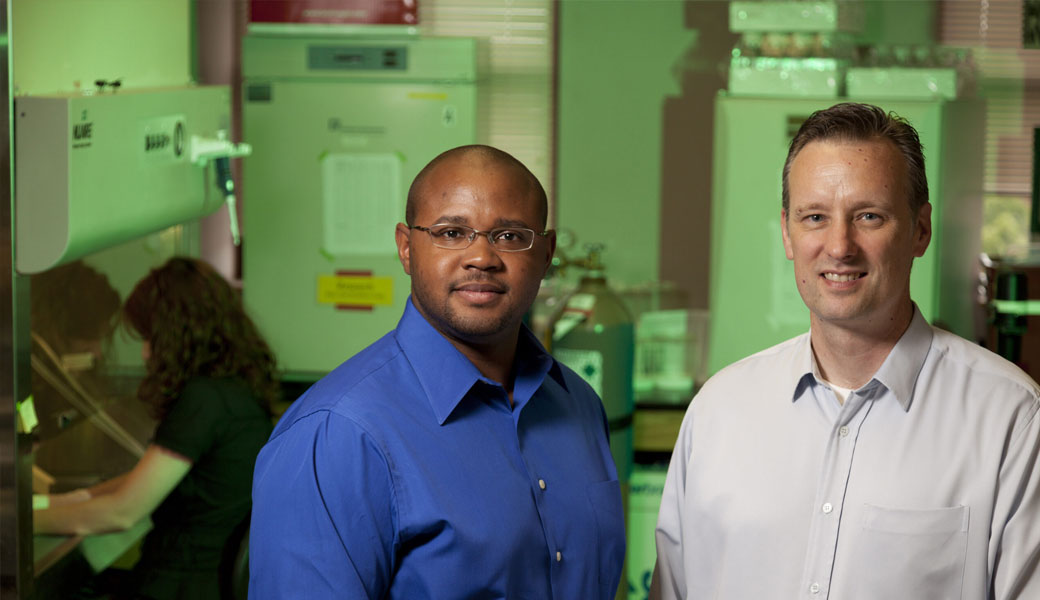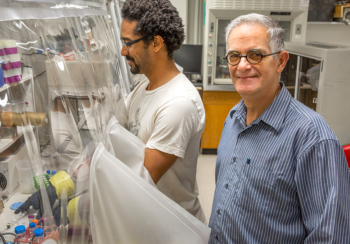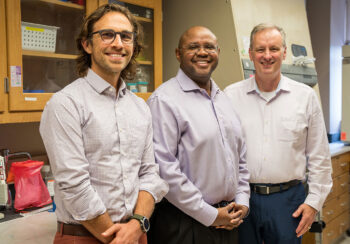Two faculty members in UGA’s Regenerative Bioscience Center, Steven Stice and Franklin West, have been awarded multiple grants from the National Institutes of Health (NIH) totaling $1.1 million to study potential treatments for traumatic brain injury.
Over the next two years, Stice and West will collaborate with MRI expert Qun Zhao, professor of physics in the Franklin College of Arts & Sciences, to evaluate and better understand the brain’s functional organization and neural repair of networks following traumatic brain injury (TBI).
TBI is a universal health concern and has been called a “silent epidemic,” as many patients are not aware they are suffering lasting damaging from injury. Each year in the United States, 2.5 million patients visit the emergency department after suffering a TBI. Of those millions, 56,800 die and more than 288,000 require hospitalization, rehabilitation programs or long-term supportive care.
According to the team, approximately 25% of moderate to severe TBI patients show a high degree of spontaneous recovery that cannot be explained. Studies have also shown that, even without rehabilitation, some recovery of function typically occurs following a TBI. One of the two NIH grants will support research using image analysis to evaluate the phenomenon of spontaneous recovery.
The second NIH grant will support further research into the capabilities of a proprietary neural exosome product, AB126™ to assess the safety, dosage, efficacy and quality of the product to potentially treat TBI.
“By studying the disease state of TBI and the limitations of brain repair in swine models, we will be able to determine whether a new approach works effectively in humans and is safe,” said West, professor of animal and dairy science in the College of Agricultural and Environmental Sciences.
The team plans to access technology and intellectual property that emerged from UGA research and spinout Aruna Bio, a biotechnology company that develops nanomedicine platforms for neurodegenerative disease and injury such as Parkinson’s, stroke and TBI.
Presently there are no neuroprotective or regenerative Food and Drug Administration (FDA) approved TBI treatments.
AB126™, licensed by Aruna Bio, could become the first FDA-approved, TBI-targeted delivery system to modulate or bypass the blood brain-barrier and enhance the body’s ability to self-repair. AB126™ is derived from a proprietary neural stem cell line and carries anti-inflammatory and neuroregenerative cargo to ultimately slow and/or stabilize the progression of TBI.
Stice, a Georgia Research Alliance Eminent Scholar in Regenerative Medicine, is co-founder and chief scientific officer at Aruna Bio. He said the NIH grants will help accelerate the company’s timeline for future clinical trials.
“The NIH funding will help the company accelerate the development phase for pre-clinical trial modeling and safety, particularly the probability of the trial’s success,” Stice said.






